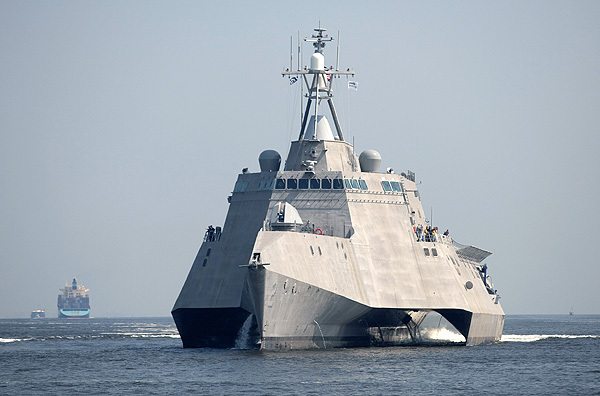The Navy announced the successful completion of shore-based and at-sea integrated system tests on the prototype Unmanned Influence Sweep System, July 20, at the Naval Surface Warfare Center, Panama City Division, in Panama City, Fla.
Designed for the LCS as part of the mine countermeasures mission package, the system provides unmanned mine sweeping capability that keeps warfighters out of the mine field. The system consists of an unmanned surface craft that carries and tows the minesweeping payload.
The test, known as Phase 1 Sweep Operational Checkout, consisted of confirming that the new sweep system can be deployed and retrieved from a surface craft and that it tows properly. The test was the first use of the prototype Sweep Power Subsystem which includes magnetic and acoustic sweep systems. The first phase of testing was completed on July 1. Phase II is currently ongoing.
“The first day of testing was executed flawlessly. The team performed very well and the system operated as expected. The data gathered during this first phase of testing will provide key performance parameters and establish benchmarks for the remainder of the test event,” said Stephen Olson, Unmanned Maritime Systems assistant program manager for UISS System Integration and Test.
This summer’s test program includes a full signature test and full mission profile where the entire UISS system will be tested in a series of integrated systems tests planned to demonstrate minesweeping capability in preparation for littoral combat ship mission package integration.
“This is another important step in our efforts to deliver evolutionary technology to the fleet,” said Rear Adm. Jim Murdoch, program executive officer for Littoral Combat Ships.
An affiliated program executive office of Naval Sea Systems Command, PEO LCS provides a single program executive responsible for delivering the Littoral Combat Ships to include seaframe, mission modules, mission systems, fleet introduction, and life cycle maintenance and sustainment.










